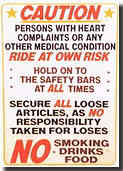Friday, August 31, 2007
George Enescu
I came through late adolescence in an era when kids were too serious about popular music. We listened to recordings over & over, without viscereal pleasure, searching for layers of meaning & nuance. Very few albums warranted this kind of close examination, & it got worse when "art rock" was the thing & bands went into the studio with the intent of making music as complex or opaque as possible. Friends tried to make me sit through tedious, bombastic records by Yes & Emerson Lake & Palmer, stuff I didn't even consider rock. With some exceptions, I wasn't comfortable dealing with rock in terms of spiritual profundity & musical complexity. I didn't worship technique in rockers. Some, like Jimi Hendrix, were obviously virtuosos. But they often stumbled trying to find contexts for their abilities, & I felt sorry for them. Jerry Garcia's endless noodlings left me cold. I preferred Neil Young, who wrote great songs, hired a bar band, cranked up the amps & just got on with it. Slick studio production didn't impress me unless it included great riffs & hooks.
That's pretty much what pushed me toward classical music. Plus a job in a great independent record store. Beethoven couldn't have imagined records & headphones, yet his deafness forced him to compose music that was made for them, since he was hearing it all inside his head anyway. Whether it was four musicians sawing on strings, or 100 reading off scores while keeping an eye on an egomaniac waving a stick, or one person banging on a complex machine with 88 levers called a "piano," classical music repaid repeated listenings. It was composed with care, required disciplined technique to perform. No matter how familiar a great classical work became, I never quite sorted it all out. The more contemporary (or ancient) the music was, the more it challenged ears accustomed to resting in the music rather than intellectually engaging it. Rock rarely ever did that, I saw no reason why it should. The dissonances & raw noise I soaked up from rock bands prepared me for the same sounds in other kinds of music.
***
 I'm thinking about this because of a new CD, a symphony by George Enescu. He composed it around 1912, not a period that gives me much difficulty anymore. But it was a strange time in the arts, struggling to get out of the 19th Century against massive resistance.
I'm thinking about this because of a new CD, a symphony by George Enescu. He composed it around 1912, not a period that gives me much difficulty anymore. But it was a strange time in the arts, struggling to get out of the 19th Century against massive resistance.
Enescu composed exactly one piece that all classical fans know & anyone can love; Romanian Rhapsody No. 1. He was Romanian, but also a cosmopolitan man, a great violinist & brilliant all-around musician who traveled widely & loved Paris especially. I was familiar with two other of his works, Romanian Rhapsody No. 2 & a chamber composition for wind instruments. None of them prepared me for his Symphony No. 2 in D major, Op. 17. Apparently, nobody was a nearly century ago, even Enescu. It was performed once in his lifetime, & he didn't have it published. I played the CD Saturday night & didn't know what to make of it. It almost completely baffled me because i couldn't fit it in any convenient category, I couldn't figure out where the door to it was located.
It was dense & sounded terribly difficult to perform - too many notes! It seemed to go forward without going anywhere, ideas dropped in & never developed. But it wasn't really "modern." In the long 3rd & last movement, something Romanian popped up, a gypsy violin maybe. But that sound receded. Then a piano joined the orchestra, like somebody had accidentally wandered in from the romantic piano concerto next door. The whole thing charged & sputtered & leaped through the last 5 minutes in a finale unlike anything I'd ever heard, rumbling, jumping & finally exploding into a big splashy chord. The ending knocked my socks off. My stunned reaction was, "What the hell was that all about?" Did I like it? Couldn't say. Did it keep me entertained? Most of the time, yes, but I didn't know if it would the next time around. I had no idea how Enescu had gotten to that chord at the end.
So I listened to the symphony, in whole & in pieces, over the next few days. I was fascinated by this intense music. Its sophistication became more apparent. I began picking out themes & motifs. The first movement was confused, but it sounded delberate, as if Enescu was taking an inventory. The quiet middle movement turned into a bittersweet love song. & the third movement, which at first seemed morose, then martial, was mapping out something more purely musical. In fact, it struck me as passionately Romanian at heart. Toward the end of the long movement, Enescu was playing the entire orchestra like a gypsy violin, the fiddler becoming more & more energized, & in the process crashing through the limits of his own provincialism. (Not a very musical analysis of the work.)
On a continent approaching another murderous war over obsolete beliefs & national borders, ethnic & religious hatreds, this sophisticated, sensitive, well-traveled musician from a country considered a cultural & political backwater was feeling something quite different. He was sick of it all. He wanted to be Romanian & be free, too. Just as he was free to go where he wanted, in the music he performed & in the music he composed. He was a man of a different, better spirit. Not a revolutionary, but not a reactionary, either.
George Enescu: Romanian Rhapsody No. 2; Symphony No. 2
Cristian Mandeal, George Enescu Bucharest Philharmonic Orchestra (Arte Nova)
"If a nation expects to be ignorant and free, in a state of civilization, it expects what never was and never will be." Thomas Jefferson
That's pretty much what pushed me toward classical music. Plus a job in a great independent record store. Beethoven couldn't have imagined records & headphones, yet his deafness forced him to compose music that was made for them, since he was hearing it all inside his head anyway. Whether it was four musicians sawing on strings, or 100 reading off scores while keeping an eye on an egomaniac waving a stick, or one person banging on a complex machine with 88 levers called a "piano," classical music repaid repeated listenings. It was composed with care, required disciplined technique to perform. No matter how familiar a great classical work became, I never quite sorted it all out. The more contemporary (or ancient) the music was, the more it challenged ears accustomed to resting in the music rather than intellectually engaging it. Rock rarely ever did that, I saw no reason why it should. The dissonances & raw noise I soaked up from rock bands prepared me for the same sounds in other kinds of music.
***
 I'm thinking about this because of a new CD, a symphony by George Enescu. He composed it around 1912, not a period that gives me much difficulty anymore. But it was a strange time in the arts, struggling to get out of the 19th Century against massive resistance.
I'm thinking about this because of a new CD, a symphony by George Enescu. He composed it around 1912, not a period that gives me much difficulty anymore. But it was a strange time in the arts, struggling to get out of the 19th Century against massive resistance.Enescu composed exactly one piece that all classical fans know & anyone can love; Romanian Rhapsody No. 1. He was Romanian, but also a cosmopolitan man, a great violinist & brilliant all-around musician who traveled widely & loved Paris especially. I was familiar with two other of his works, Romanian Rhapsody No. 2 & a chamber composition for wind instruments. None of them prepared me for his Symphony No. 2 in D major, Op. 17. Apparently, nobody was a nearly century ago, even Enescu. It was performed once in his lifetime, & he didn't have it published. I played the CD Saturday night & didn't know what to make of it. It almost completely baffled me because i couldn't fit it in any convenient category, I couldn't figure out where the door to it was located.
It was dense & sounded terribly difficult to perform - too many notes! It seemed to go forward without going anywhere, ideas dropped in & never developed. But it wasn't really "modern." In the long 3rd & last movement, something Romanian popped up, a gypsy violin maybe. But that sound receded. Then a piano joined the orchestra, like somebody had accidentally wandered in from the romantic piano concerto next door. The whole thing charged & sputtered & leaped through the last 5 minutes in a finale unlike anything I'd ever heard, rumbling, jumping & finally exploding into a big splashy chord. The ending knocked my socks off. My stunned reaction was, "What the hell was that all about?" Did I like it? Couldn't say. Did it keep me entertained? Most of the time, yes, but I didn't know if it would the next time around. I had no idea how Enescu had gotten to that chord at the end.
So I listened to the symphony, in whole & in pieces, over the next few days. I was fascinated by this intense music. Its sophistication became more apparent. I began picking out themes & motifs. The first movement was confused, but it sounded delberate, as if Enescu was taking an inventory. The quiet middle movement turned into a bittersweet love song. & the third movement, which at first seemed morose, then martial, was mapping out something more purely musical. In fact, it struck me as passionately Romanian at heart. Toward the end of the long movement, Enescu was playing the entire orchestra like a gypsy violin, the fiddler becoming more & more energized, & in the process crashing through the limits of his own provincialism. (Not a very musical analysis of the work.)
On a continent approaching another murderous war over obsolete beliefs & national borders, ethnic & religious hatreds, this sophisticated, sensitive, well-traveled musician from a country considered a cultural & political backwater was feeling something quite different. He was sick of it all. He wanted to be Romanian & be free, too. Just as he was free to go where he wanted, in the music he performed & in the music he composed. He was a man of a different, better spirit. Not a revolutionary, but not a reactionary, either.
George Enescu: Romanian Rhapsody No. 2; Symphony No. 2
Cristian Mandeal, George Enescu Bucharest Philharmonic Orchestra (Arte Nova)
Labels: music














